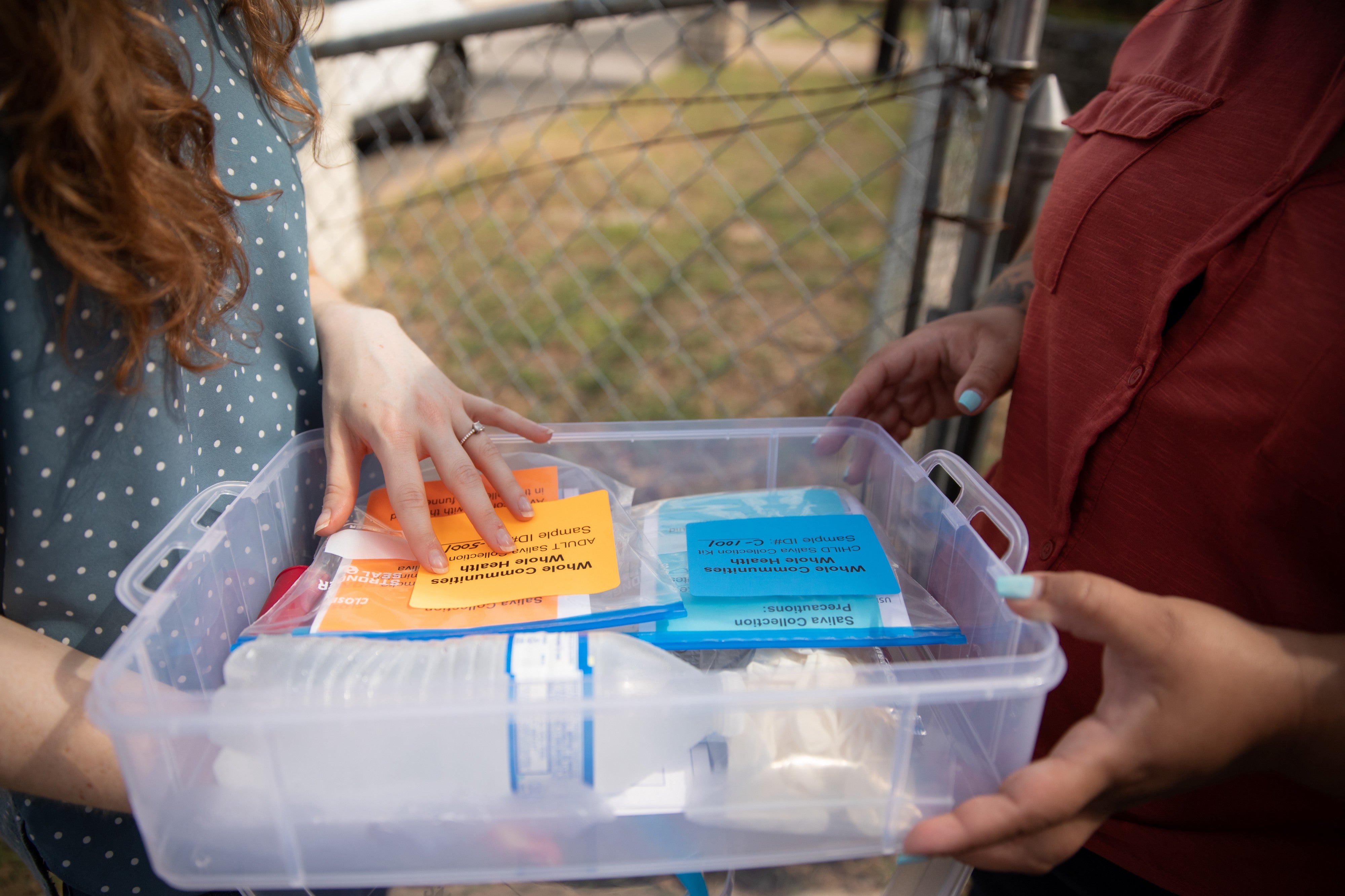
Scientists working to understand how lifestyle, environmental exposures, and family history contribute to health and wellbeing are fundamentally interested in causal links. Catch that word “causal”? That means we want to understand when one thing causes something else to happen.
Let’s take something we all believe to be true: eating a lot of fatty foods increases our risk for heart disease. In other words, one causes the other, so we say there is a “causal relationship.” How would we find that out? Well, one option would be to design an experiment that randomly assigns some people to eat a lot of fatty foods and another group to eat lean foods. Then we watch and see who develops heart disease.
WAIT!? We can’t do that! It would be unethical to create a disease in one group. But for a scientist, that would be the only valid way to show that consuming excess fatty foods leads to heart disease. Of course, we could do it in animals, but mice and rats are not just small humans, so the results may not be applicable.
So what’s the solution? The solution is what is we call a cohort study. A cohort is a group of similar people, so a cohort study involves following that group of similar people across a long period of time to observe their traits or behaviors and see if we can understand how those might affect their physical or emotional health. Take the heart disease example again: some people in that cohort study would naturally choose to eat a lot of fatty foods, and others wouldn’t. We also know that within a given group of people, there will be family-related genetic variation that can increase risk for heart disease and diabetes, that further affects their likelihood of developing serious illness. Over many years, we can observe these different variables in the real world and see what we can find out.
While we scientists are important in the process, we could never conduct essential cohort studies without the involvement of the individuals who volunteer their time.
One of the most famous cohort studies, The Framingham Heart Study, set out to answer questions about heart disease beginning in 1948. To date, the study has enrolled three generations of participants and is single-handedly responsible for a vast array of knowledge about heart health, eating, lifestyle, and genetic vulnerability. More than 1,200 scientific articles have been published from the Framingham Heart Study. But, do you know what is the most important aspect of this study? The participants! Without the dedication and commitment of the literally thousands of study participants, we wouldn’t have this knowledge about human heart health. And as participants age, the Framingham Heart Study has also started to reveal important findings about how heart health influences cognitive aging and vulnerability to dementia.
Ensuring participant diversity
While we scientists are important in the process, we could never conduct essential cohort studies without the involvement of the individuals who volunteer their time. There are two essential features of a cohort study that make the effort of these volunteers so important: 1) the group of individuals to be studied is representative of the population that we want to understand and 2) that those in the group go about their lives as they normally would.
This may not seem like a big deal, but both features are very important and difficult to achieve. The first feature will frame the conclusions that can be made from any study. For example, if the individuals enrolled in the cohort study are overwhelmingly affluent people of one race, that would limit our understanding of how less-affluent people and/or those of diverse races would be affected by the variables being studied. With respect to the Framingham Heart Study, the understanding of genetic and lifestyle influences on heart health would be significantly limited if all the participants were of the same European ancestry and the same socioeconomic status. Lack of diversity has a very significant effect on what conclusions we can make and how useful they will be to society at large.
And, problematically, lots of cohort studies suffer from a lack of participant diversity. This is partly because economically affluent people are more likely to volunteer for studies; they may have more time, childcare, or reliable transportation. Just as important, science in America is marred by a racist history — you may be familiar with the Tuskegee study — so it is reasonable and understandable that Black, Indigenous, and Latino/a communities would be suspicious and less likely to volunteer for scientific studies, particularly those conducted by institutions that they don’t personally know or trust.
This is one of the principal problems that Whole Communities–Whole Health is trying to address. One of the ways in which we are approaching our work to understand more about the various factors that affect overall health is to engage directly in partnership with the communities we would like to work with so that we can build trust and foster a shared commitment to the project.

A better way to collect and share data
Another problem with cohort studies is that they take time. A typical cohort study, for instance, could take 10 to 20 years, from participant recruitment to publishing the findings. And rarely is information that could be helpful to those who participated shared with them in a timely manner. Sometimes it takes more than a decade for participants to learn the results of the study — and even then, only if they make the effort to seek out those results. The design of our Whole Communities–Whole Health study, however, addresses this directly by providing feedback to participants through a private dashboard available on their mobile devices. These findings will be generated in near real time and tailored to the individual’s interests so that they can gain important information quickly about their lives and the environment around them. This information is critical to making changes in their everyday lifestyles that could benefit their overall health.
A final problem for cohort studies is what we refer to as participant burden. People are asked to come to a location for regular data collection such as physical exams, blood draws and other physiological measurements, extensive surveys, and interviews that often occurs across multiple days. Because the scientists want to reduce that burden, we often collect data on reduced schedule — once or twice a year. But this schedule gives us only periodic snapshots of the important relationships we want to understand. Whole Communities–Whole Health is working to leverage newer sensor-based approaches, such as wearable technology and environmental sensing devices that will collect data as participants go about their normal life. This technology also provides a more complete picture of a person’s lifestyle by giving a minute-by-minute account of factors like heart rate, physical activity, air quality and other important factors.
For the past two years, our team at The University of Texas at Austin has been working with community organizations in the Del Valle area of southeastern Travis County to learn about health and environmental issues affecting families and identify interested participants. At the same time, we have been designing, testing, and refining our technology, including the environmental sensing devices and a dashboard, that will share information with the people who need it most. All this work has brought us to where we are today: at the launch of our 5-year cohort study. We are currently working with the community to learn how to empower individuals, community organizations and policymakers to make meaningful changes that will improve their overall health.

